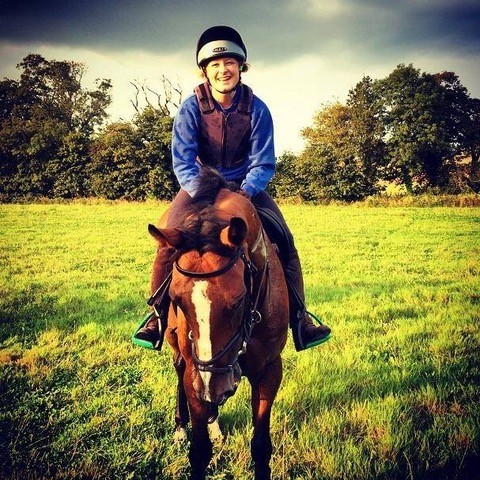Standing up for the veterinary profession
08 Aug 2024
06 Oct 2020 | Izzy Wild
Equine vets Izzy Wild and Malcolm Morley share their experiences of being a new graduate employee and employer respectively. In Part 1, Izzy Wild reveals what her time as a new graduate was like.

This case study is taken from the BVA New Graduate Guide, last updated in 2019, available to all BVA members in the resources & support area on our website.
Izzy Wild, a 2018 graduate from Nottingham, was 6 months into her job as an associate vet in a 100% ambulatory equine practice in Hampshire. Here, Izzy’s manager, Malcolm Morley, a 1993 Bristol graduate and now Director of the practice, interviewed her to get her thoughts on her challenges and what she has achieved. Then, in Part 2, they swap roles and Malcolm gives his thoughts on what he looks for when employing a new graduate and tips for other new graduates who may want to follow a similar path.
I applied for my job having done a placement at the practice a few years ago. I knew most of the team members, and I got on well with them and could see myself fitting with the team, which I think was a big plus. This was the main reason why I applied for the job. In final year, I enjoyed keeping my options open to most areas of practice. I was considering mixed or equine practice, but when the opportunity arose, I thought the job would be right for me! I didn't apply anywhere else(!).
Yes, it definitely was a challenge. Even just finding out where the drugs were in my car and navigating to calls in the pickup was challenging — 10 point turns in a very long car on country lanes requires skillz. But it was a fun challenge, aside from the logistical challenges, from day one I was seeing a varied caseload, with my first case a horse in respiratory distress. The practice had never taken on a new grad before but my boss was keen to mentor me from the start, which included twice weekly seminars/case catch-ups before work and even practising practical skills on my poor horse — dentistry, foot x-rays, and lameness evaluation using equinosis.
This is a direct challenge of the job — however, it is amazing how telecommunications can be so useful. In the first week I think I pretty much phoned someone before each call, but by the second week this halved as I got more confident. Now (six months on), I tend to occasionally phone or send a message to double check my plan is correct if I am unsure, and if something weird and wonderful comes in. In my first three months of on call, I had an official person to provide back-up (mainly telephone advice) but if there is a problem there is still someone I can get hold of now. I think it helps to know your own limitations but not to be afraid to try new things.
I think I am very lucky to have such a supportive team. The clients are really straightforward too — defying the ‘horsey people’ myths! The case load is variable; sometimes it is really busy, sometimes there are lulls to catch up on admin, watch webinars, and read over things I am interested in. Being outdoors on the road is also a massive plus!
I think the most difficult aspect is when things don't always go to plan, but luckily someone in the team always has an anecdote where something else has gone equally or more wrong… it’s just the nature of the work. Another challenge is communicating to a client bad news — especially when they are not aware of a major problem.
Apply for somewhere you know or that has been recommended. Make sure they are able to provide you with plenty of support — on-call back up, phone assistance, mentoring etc, but are happy for you to crack on with things that you are capable of.
Get tailored news in your inbox and online, plus access to our journals, resources and support services, join the BVA.
Join Us Today